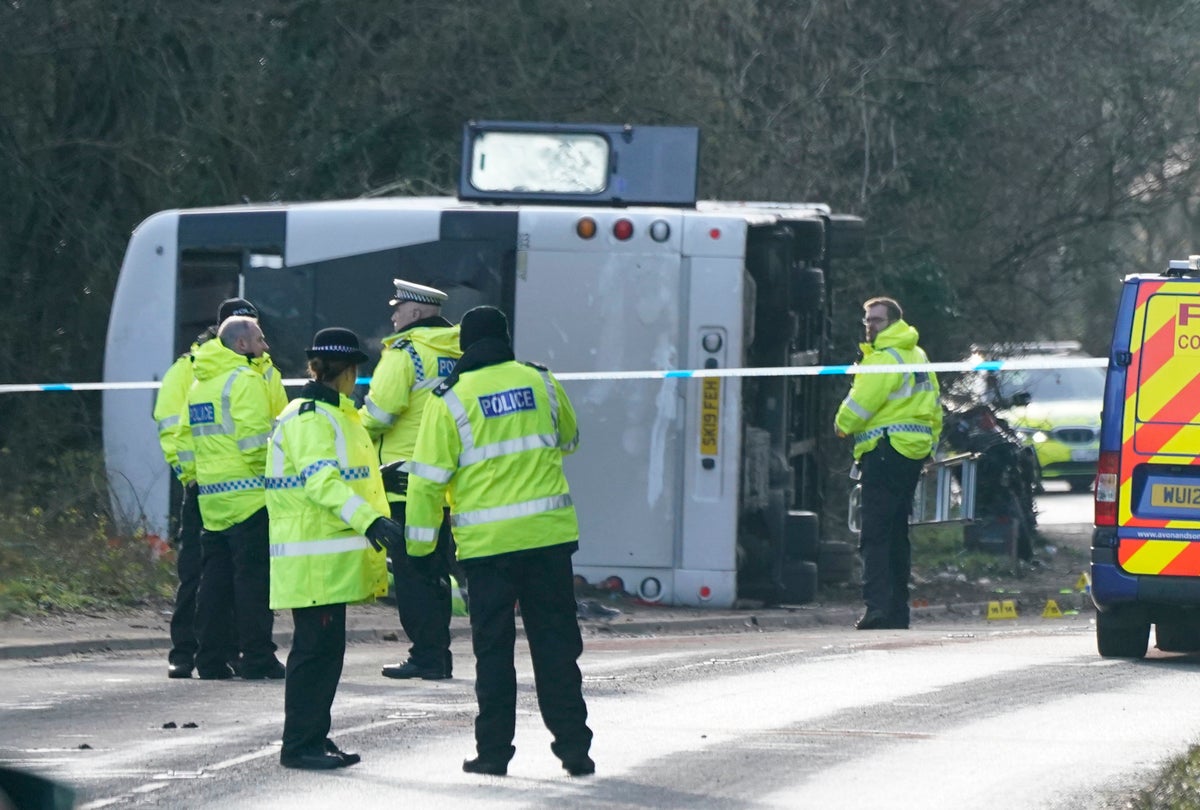
More than 50 people have been injured after a double-decker bus carrying over 70 people overturned in Somerset.
No fatalities were reported by police, but a spokesperson for the force confirmed that 54 people were triaged at the scene, 26 of whom are being treated as walking wounded.
The force said a number of those injured had been taken to surrounding hospitals, including Musgrove Park Hospital, Bridgwater Minor Injuries Unit, and Southmead Hospital.
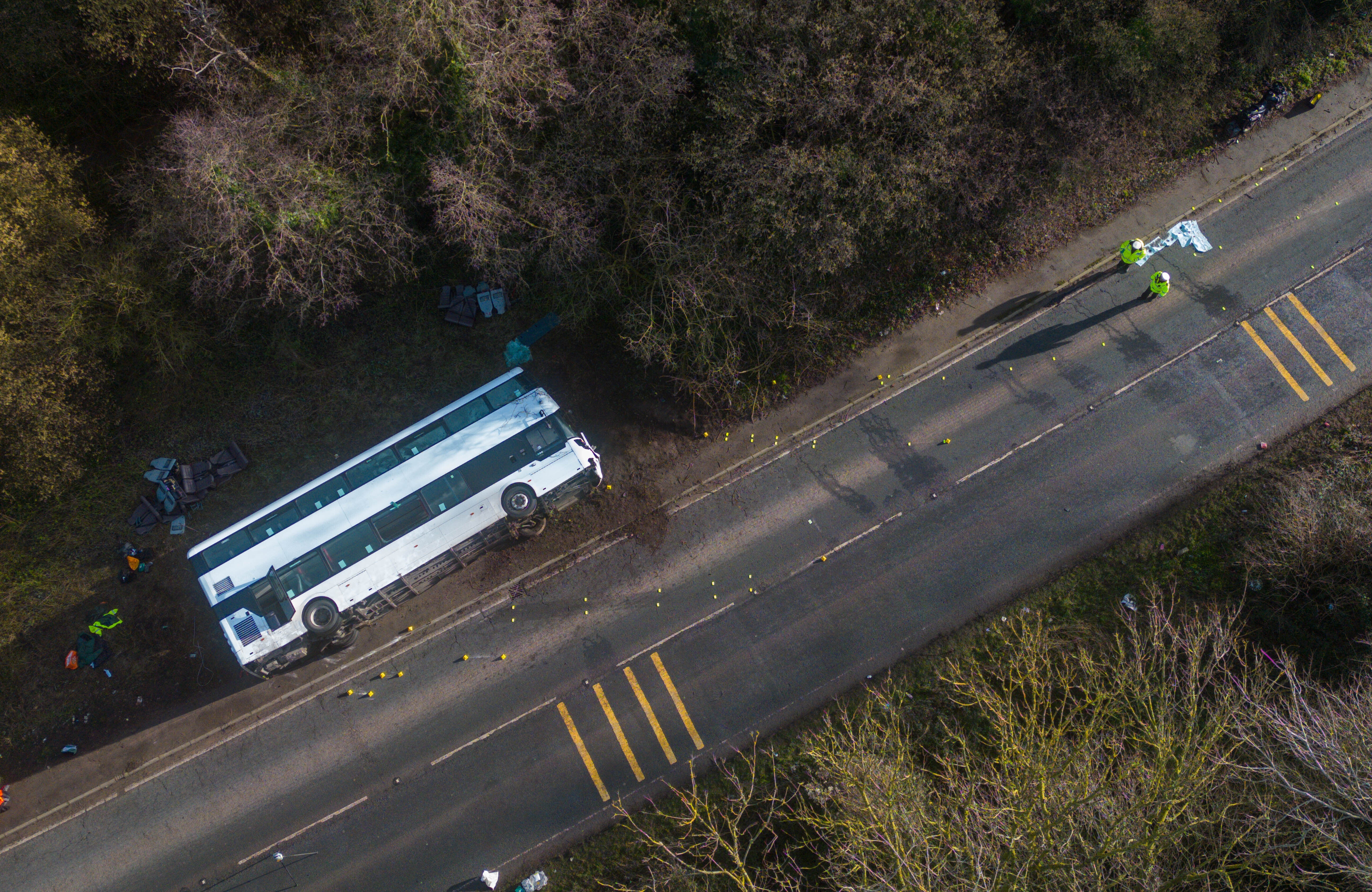
A major incident was declared earlier on Tuesday, but has since been stood down. Police officers were called at around 6am to the A39 Quantock Road, near Bridgwater, after a crash involving the bus and a motorcyclist.
Passengers on board included workers from Hinkley Point C nuclear power station, a spokesman for the site confirmed.
Inspector Rebecca Wells-Coal of Avon and Somerset Police confirmed that a driver and 70 power plant workers had been on board.
Devon and Somerset Fire and Rescue said it sent “two fire engines from Bridgwater station along with a heavy rescue vehicle from Taunton.
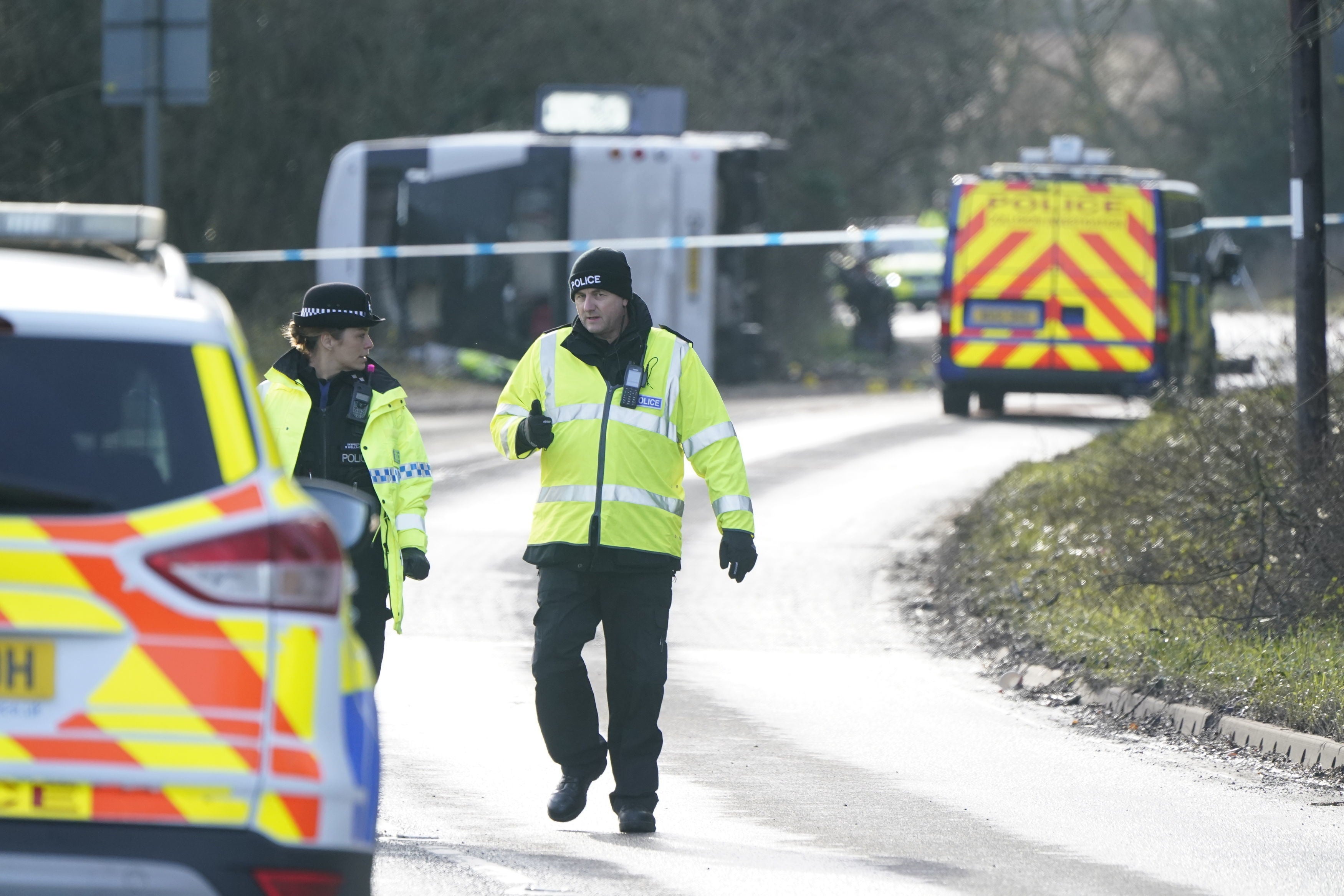
“On arrival, we mobilised two further two engines from Taunton, one from Burnham-on-Sea and an incident command unit from Street to assist,” a spokesperson said.
“Crews used hydraulic cutting equipment and small tools to extricate three casualties from the bus.”
Images of the scene appear to show an icy surface on the road, which remains closed.
It comes after the force urged motorists to avoid all but essential travel in the area as wintry conditions continue to wreak havoc on roads.
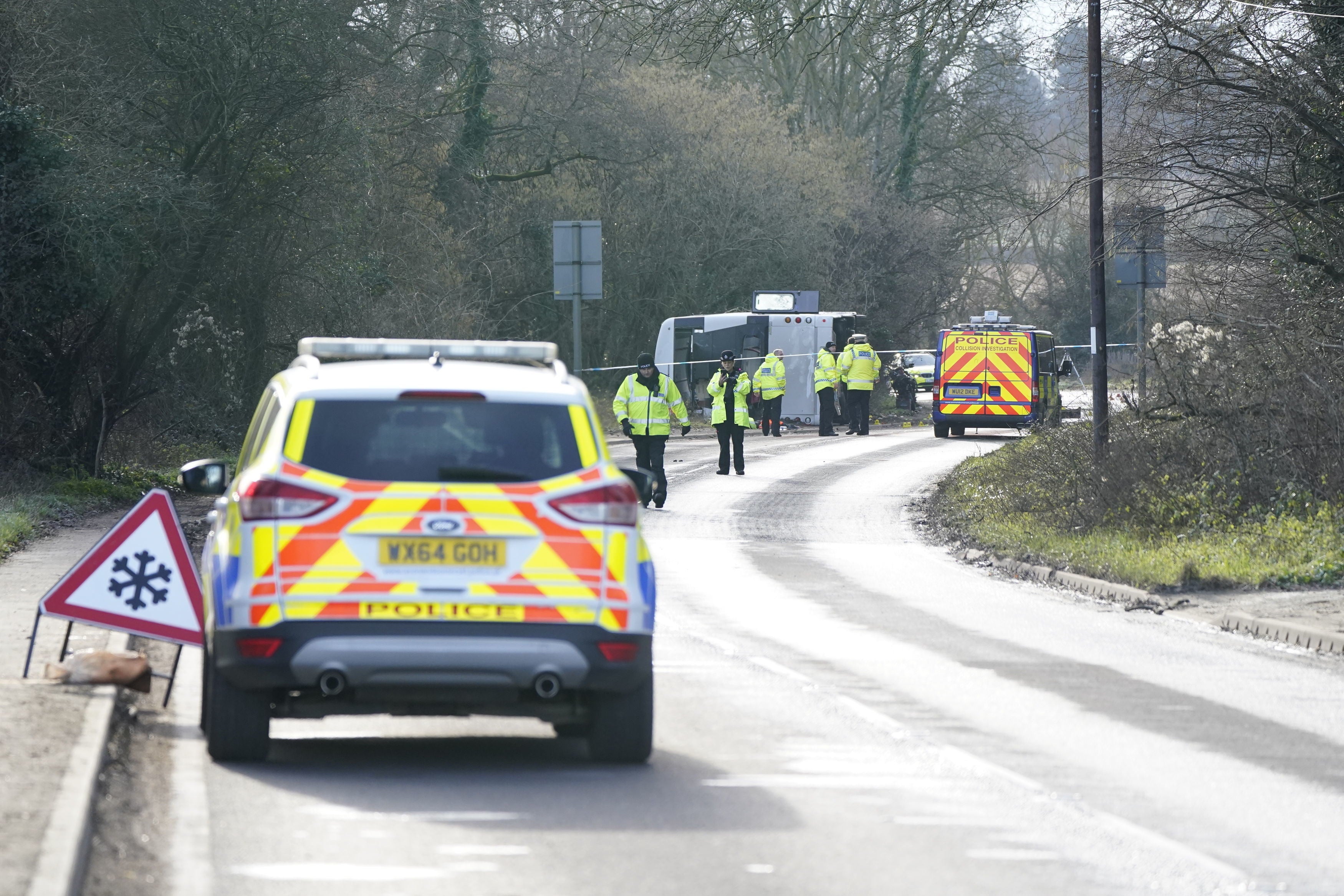
Superintendent Mark Runacres said: “We are advising the public to only travel where absolutely essential due to the treacherous driving conditions.
“If travel is necessary, we ask the public to take extreme caution and allow additional time to travel.
“We have seen a significantly higher number of road-related collisions and incidents in the past 12 hours, which has increased the demand on police resources.
“We are working with local authorities and National Highways to ensure roads are properly gritted ahead of the rush-hour traffic to improve driving conditions.”
Temperatures were around -1C in the area at the time of the crash. A yellow weather warning is also in place, with forecasters warning of icy stretches on some roads.
The force added on Twitter: “Please only travel if it is absolutely essential.
“The conditions are extremely icy and dangerous due to the freezing conditions overnight and residual water on the road from the past week’s wet weather.”
It followed an earlier statement from police on Tuesday morning, saying it had received more than 100 reports of road-related incidents in five hours.
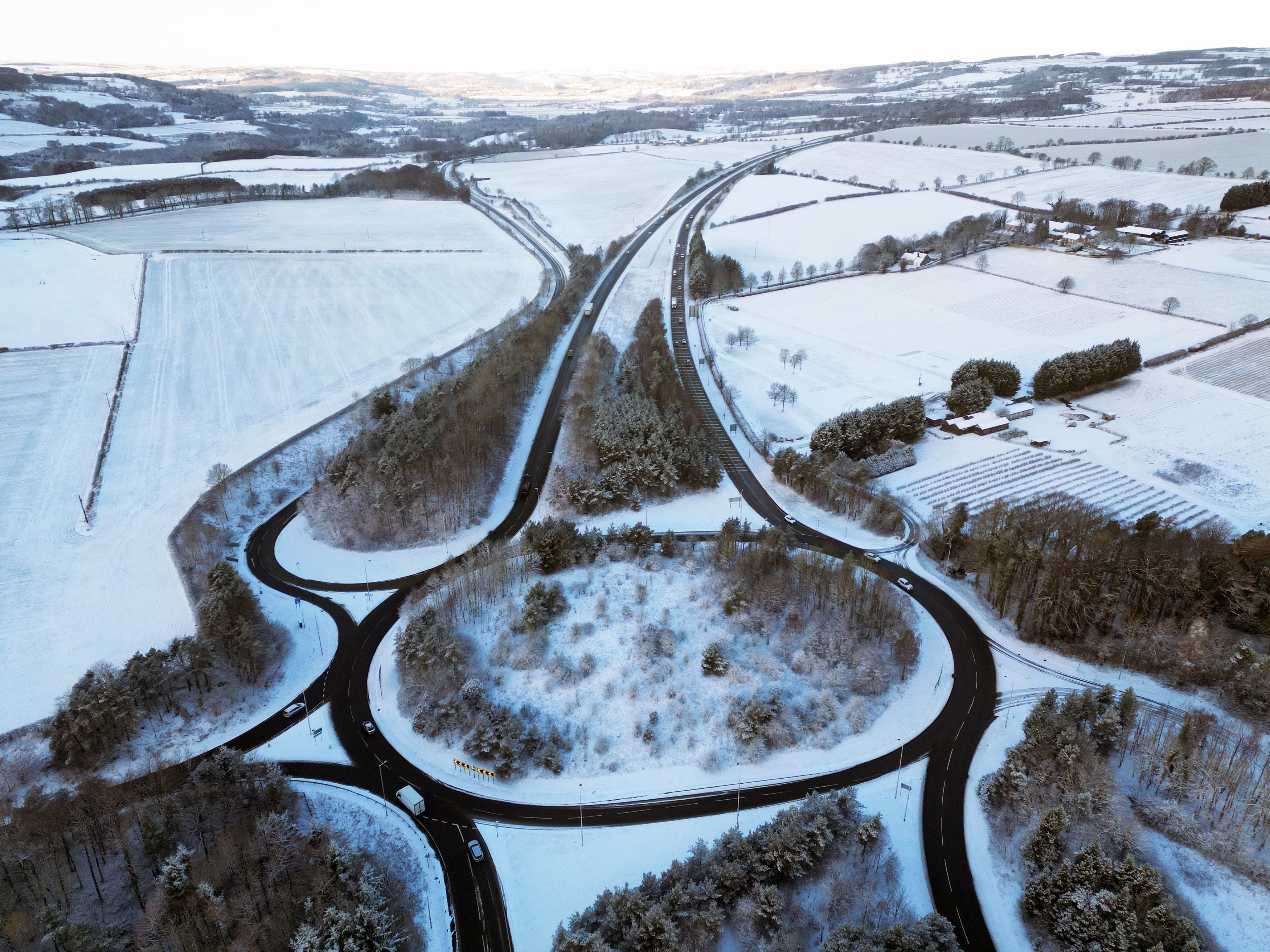
A total of 53 road traffic collisions were reported to police between 6pm and 11pm on Monday evening, with the majority being a result of the freezing weather causing dangerous driving conditions.
The force said seven of the incidents were reported to have resulted in injuries but they are not thought to be serious.
A further 67 calls were received for other road-related incidents.
The UK Health Security Agency (UKHSA), a government health agency, issued a level three cold alert on Monday in response to “severe winter weather”.
The Met Office has said all of England will continue to experience cold weather until 9am on Friday.
Forecasters issued a yellow warning for ice across southern England which is in place until 10am on Tuesday morning, with ice likely to cause difficult driving conditions.

A separate yellow warning for snow and ice is also in place in Cornwall and Devon until 10am.
An amber weather warning for heavy snowfall is also in place across parts of eastern Scotland.
Meanwhile in London, mayor Sadiq Khan activated the capital’s Severe Weather Emergency Protocol (SWEP) to provide emergency accommodation for rough sleepers on Monday, as temperatures in the city are expected to plunge below 0C overnight.
The Met Office has warned that “snow showers and icy stretches may bring some disruption” and could lead to longer journeys for drivers and train passengers.
It said treacherous conditions could also lead to slips and falls on icy surfaces, and urged drivers and cyclists to beware of icy patches on untreated roads.







